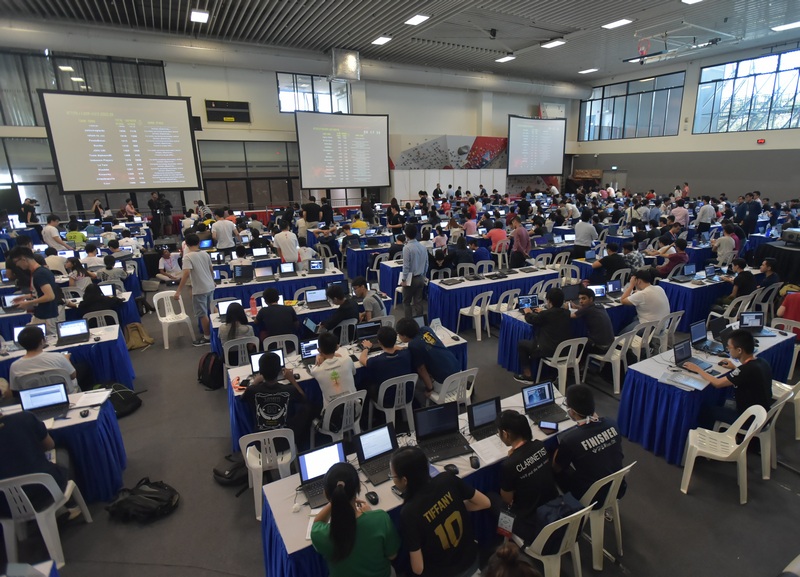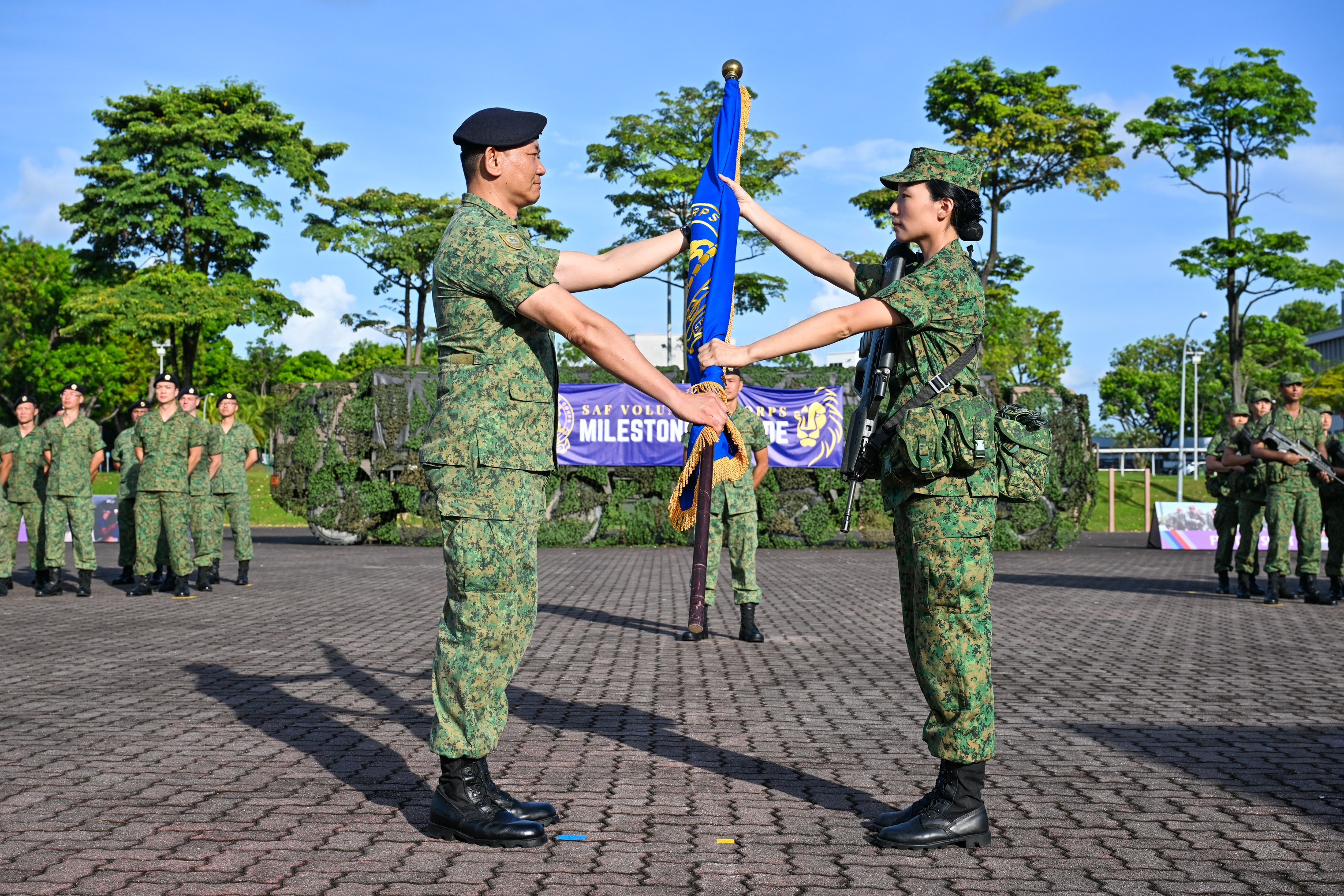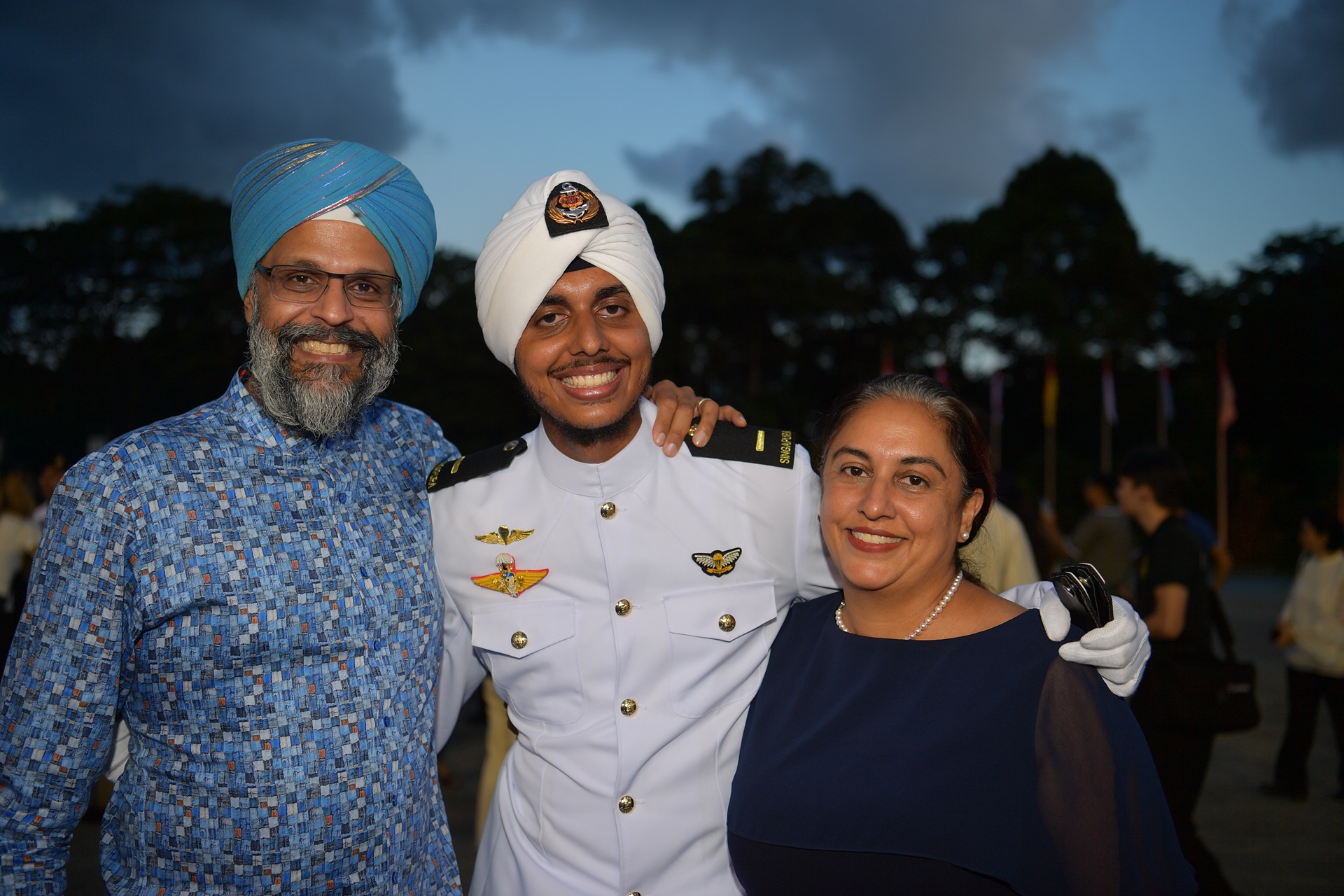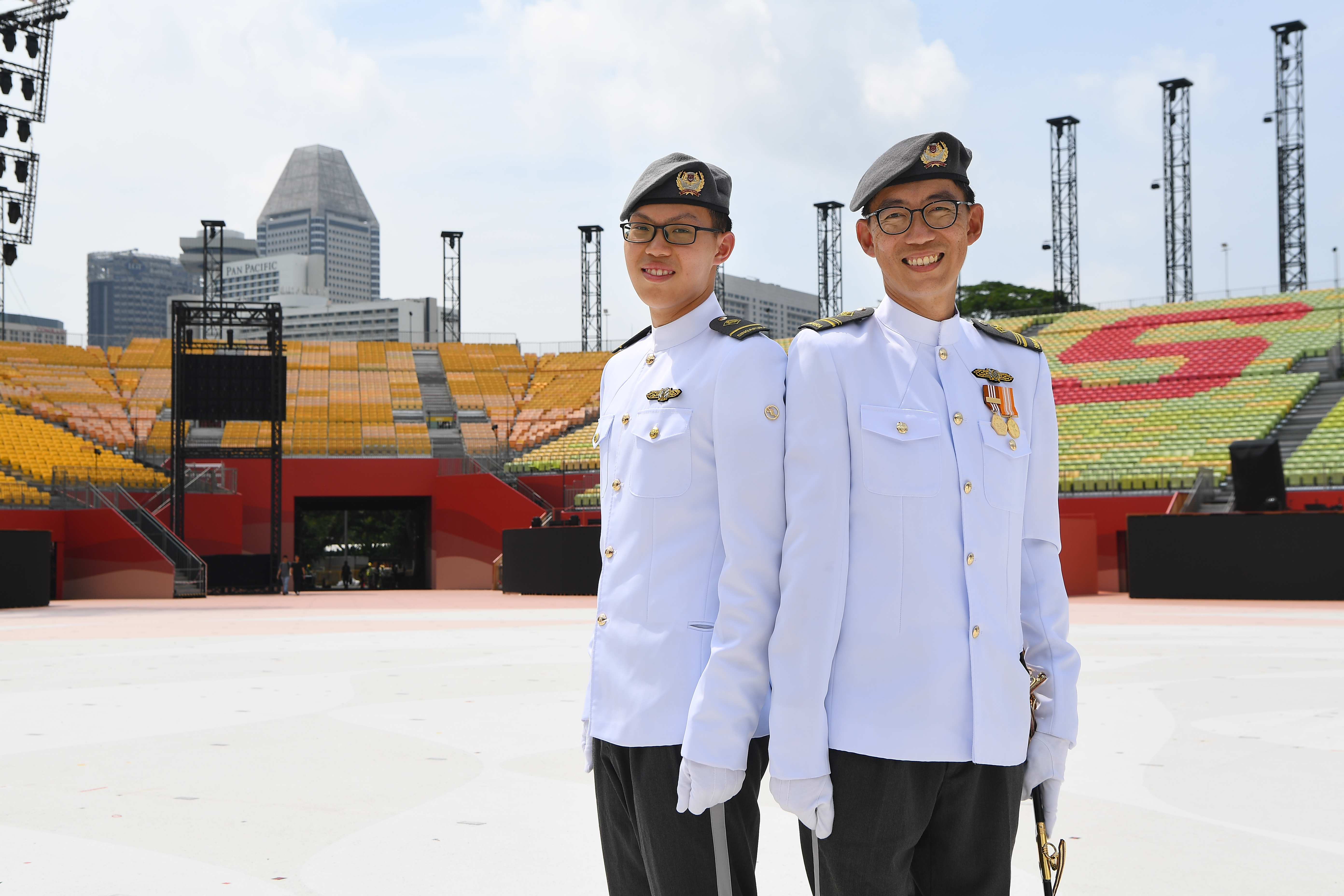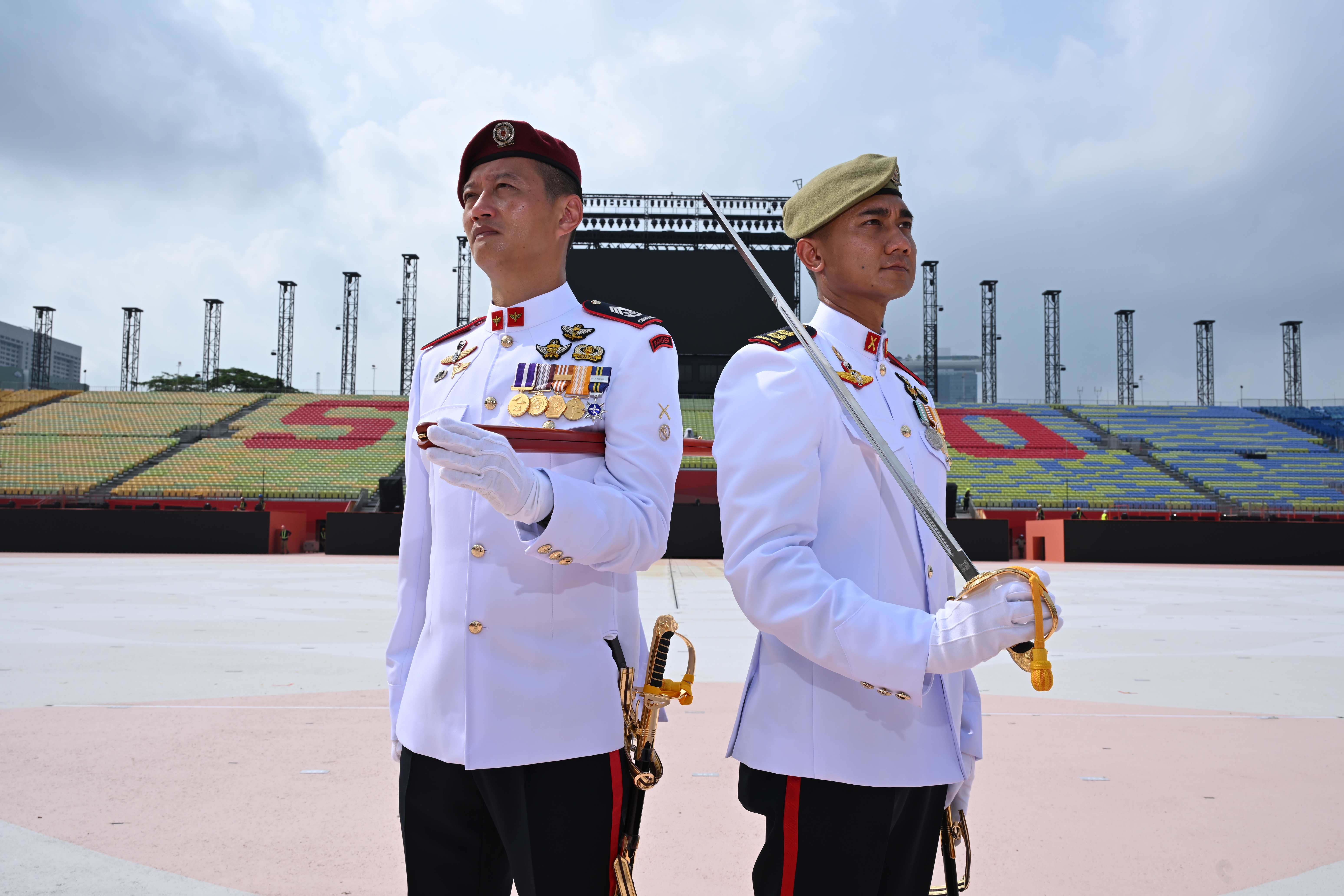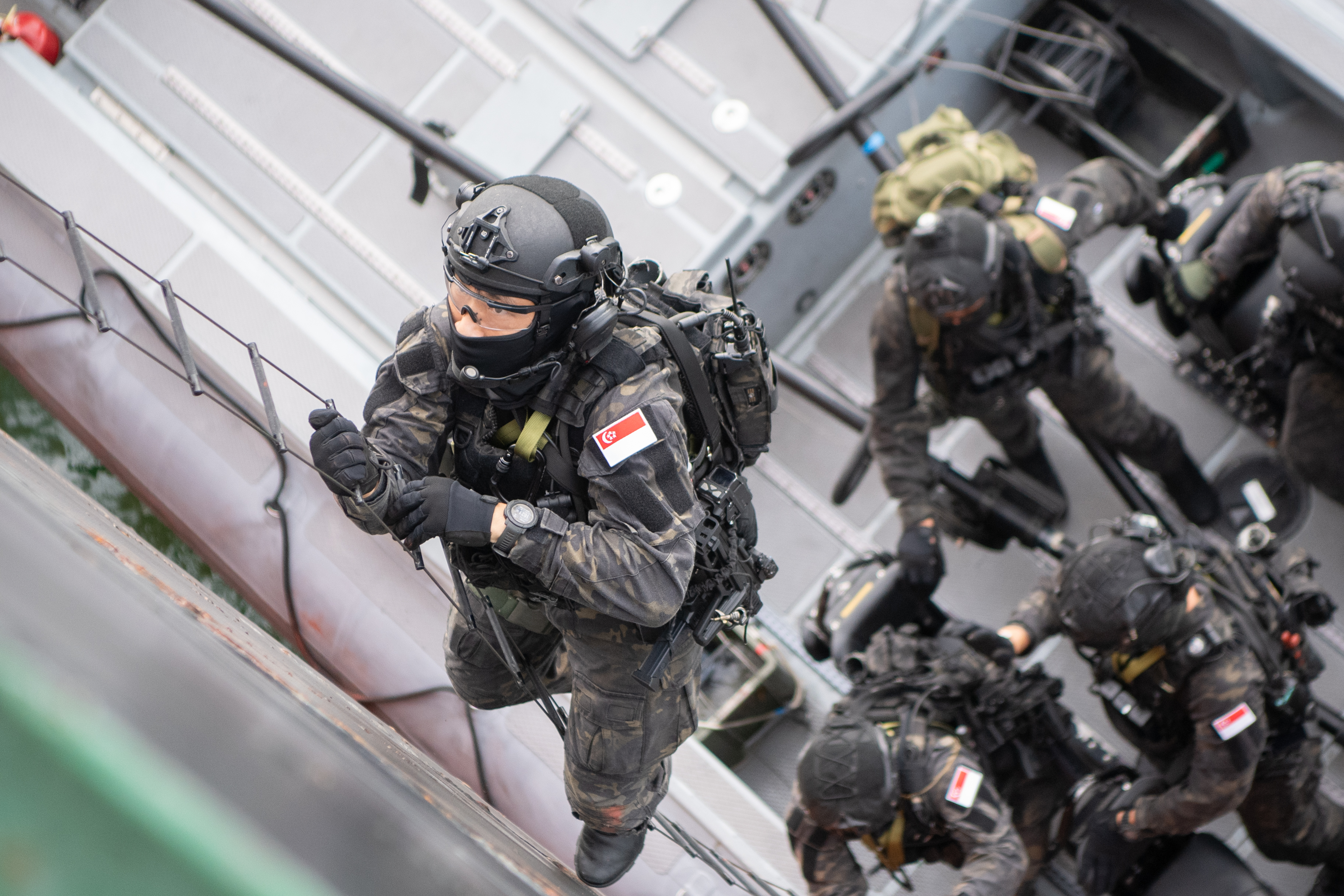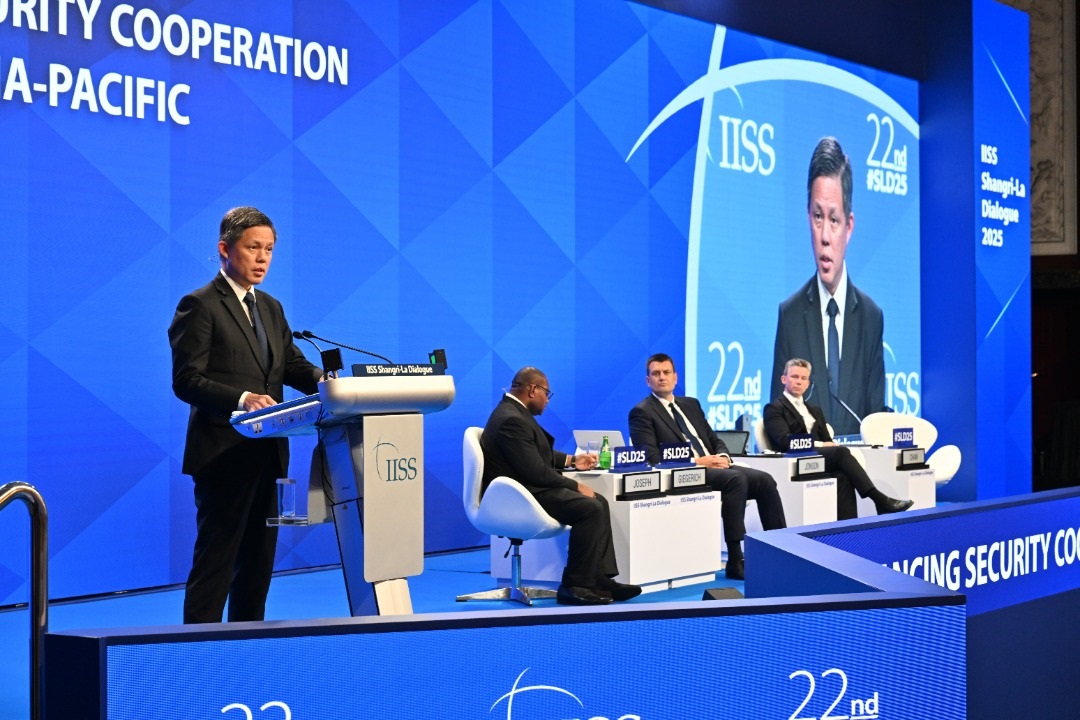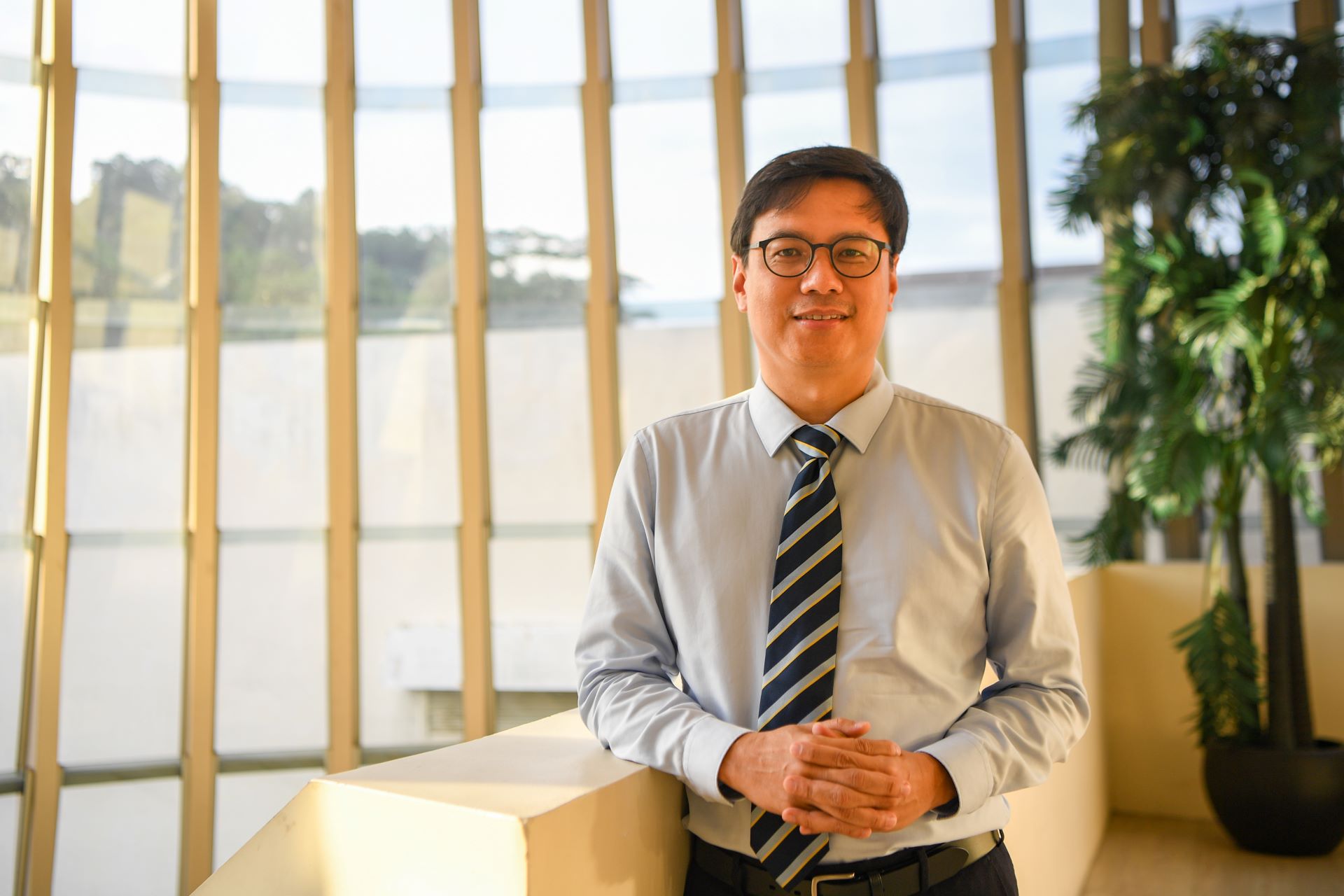PUTTING YOUNG CYBERSECURITY TALENTS TO THE TEST
PHOTO // Shaun Ng
Smart home systems may be all the rage now, offering convenient management of all your electronic items through the Internet of Things (IOT) with just a tap of your smartphone. But that convenience also means intruders can enter your home and take control of all your appliances and devices just as easily by hacking into your network.
How do you protect yourself from these hidden intruders?
This was one of the real-life scenarios that teams participating in the 5th Cyber Defenders Discovery Camp (CDDC) had to face, as they raced against the clock to sniff out cyberattackers and defend their networked systems.
The IOT has real-world consequences: it s not just someone taking down your website... It can affect your life. Having the knowledge to test and secure your IOT devices can protect not only your appliances but also autonomous vehicles or embedded systems, said CDDC participant Private (PTE) Velusamy Sathiakumar Ragul Balaji.
Such true-to-life simulations also gave participants a taste of hunting down faceless cyberattackers in the vast World Wide Web.
The 19-year-old Singapore Armed Forces (SAF) Full-time National Serviceman (NSF) explained: It s akin to the real world where you have to search for your victim or attacker before defending yourself. No one is there to give you the questions. You have to find the questions and then solve them.
For being one of the fastest to suss out the attackers and protect the systems, PTE Ragul and his team, T0X1C V4P0R, took home the gold medal in the University/Polytechnic category. The team included Singapore Civil Defence Force NSF PTE Ho Jie Feng, 19, and undergraduates Kenny Lim, 25, and Lim Anyu, 27.
PTE Ragul has secured a place at the Singapore University of Technology and Design (SUTD) and PTE Ho has a spot in the National University of Singapore. The other two in the team are from the Singapore Management University.
Held at SUTD, the five-day camp saw 400 participants from 26 schools coming together to learn cybersecurity methodologies such as monitoring networks and systems, responding to cyber incidents and analysing digital forensic evidence.
The camp culminated in two days of stiff competition, where teams of four pitted their knowledge and skills against each other in a series of challenges to attack or defend simulated real-world scenarios.
At the awards ceremony on 8 Jun, 2nd Minister for Defence Ong Ye Kung reminded the students of the increasing importance of cybersecurity, citing the recent spate of cyberattacks around the world and in Singapore.
Mr Ong said: As Singapore aspires to be a smart nation we must defend ourselves against cyber threats and the dark side of the Internet. That is the precondition for us to derive maximum economic benefits and opportunities from digital connectivity.
The increasing frequency of cyberattacks had also given the students greater awareness of the current environment, mentor Dr Melissa Chua noted.
The students this year are more interested and passionate about cybersecurity because of more cyberattacks that happened recently. This made learning faster, said the 30-year-old senior engineer in the Defence Science and Technology Agency Cybersecurity Programme Centre.
It s closer to their hearts, so they want to learn more about how their systems get attacked and how they could defend against it. They are also showing more interest in things outside of the scope of what they are taught, such as military systems as well.
As for Junior College (JC)/Integrated Programme champions Eellogofusciouhipoppokunurious, comprising Hwa Chong Institution students Zhang Chen Xin, 17, Ding Ruide, 19, Won Ying Keat, 18, and Li Bailin, 20, the competition gave them a glimpse of how vast the Internet and its vulnerabilities are.
Bailin said: It definitely feels good to win. However, according to the organisers, there are more points in the competition that could be scored. To me, that shows that there s a lot more to learn and explore. This camp has showed me that this field requires continuous learning.
During the ceremony, Mr Ong announced that the winners and outstanding performers of the CDDC would be invited to go through the selection process to join the SAF s new cyber defence vocation in the Defence Cyber Organisation.
We should learn from our elite combat forces, to develop our cyber defence force also as an elite force comprising people with exceptional talent. Hence, recruitment must be highly selective, and the demands on the vocation will be exact (and) intense, Mr Ong said.
He added that the Ministry of Defence would be working with the education institutions to identify potential cyber defenders.
The announcement was warmly received by the students, especially Bailin, who will be enlisting after he graduates.
The JC2 student said: I m definitely hoping to get into the (cyber defence) vocation because it is in line with my interest and passion, and I can serve the nation while doing something I love.
PTE Ragul, a military police in the SAF, believed the new vocation would benefit his cyber defender juniors whom had yet to enlist, as well as the SAF itself: The SAF will become very efficient if they hire people who are very interested in what they do and can put in their 200 percent.
